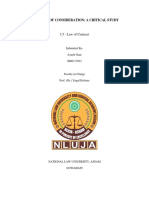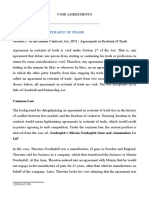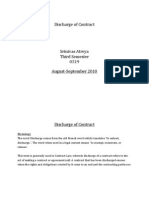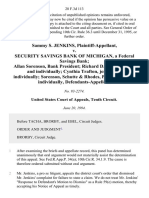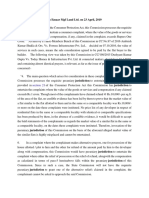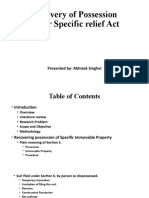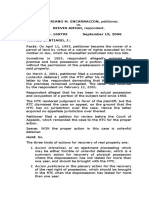0% found this document useful (0 votes)
2K views12 pagesMeaning of Contract, Nature and Scope of Contract
1. A contract refers to an agreement between two private parties that creates mutual legal obligations. It can be oral or written, though written is less risky.
2. There are five types of contracts based on enforcement: valid, voidable, void, unenforceable, and illegal. There are also two types based on creation: express and implied.
3. The scope of contract law governs basic contractual obligations and rights that arise from agreements between two or more persons, creating an obligor with a legal duty and an obligee who benefits. This distinguishes it from criminal law obligations.
Uploaded by
Tripti SharmaCopyright
© © All Rights Reserved
We take content rights seriously. If you suspect this is your content, claim it here.
Available Formats
Download as PPTX, PDF, TXT or read online on Scribd
0% found this document useful (0 votes)
2K views12 pagesMeaning of Contract, Nature and Scope of Contract
1. A contract refers to an agreement between two private parties that creates mutual legal obligations. It can be oral or written, though written is less risky.
2. There are five types of contracts based on enforcement: valid, voidable, void, unenforceable, and illegal. There are also two types based on creation: express and implied.
3. The scope of contract law governs basic contractual obligations and rights that arise from agreements between two or more persons, creating an obligor with a legal duty and an obligee who benefits. This distinguishes it from criminal law obligations.
Uploaded by
Tripti SharmaCopyright
© © All Rights Reserved
We take content rights seriously. If you suspect this is your content, claim it here.
Available Formats
Download as PPTX, PDF, TXT or read online on Scribd
/ 12
























